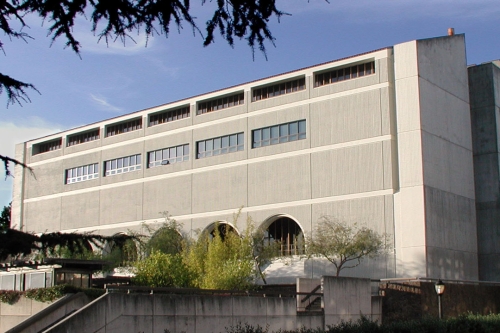CEE's new undergraduate design course, CE 186: Design of Cyber Physical Systems, has won the Berkeley Energy and Climate Lectures Curriculum Innovation Award.
The award is for faculty who develop new survey courses on topics related to energy and climate change and through their curriculum bring the innovative research of UC Berkeley into the classroom.
The course was created by Professor Steven Glaser, Professor Raja Sengupta and Assistant Professor Scott Moura, to provide CEE's senior undergraduate majors with a capstone design course that studies the cyber-physical system that interfaces electrified transportation with the electric grid infrastructure.
Across the world, communities are rapidly urbanizing. Civil infrastructural systems, such as transportation and energy networks, are diversifying and merging. Civil and environmental engineers can help form the future by merging transportation and smart grid optimization.
The course exposes students to hardware, software, and algorithms. The interconnection of these forms a cyber-physical system that is the basis for interfacing transportation and energy. The course is currently taught by Glaser and Sengupta.
This design course follows the College of Engineering's emphasis on educating students with hands-on project-based courses. The course takes place within the CITRIS Invention Lab, a space oriented towards fostering creativity and inventive thinking.
Students taking the course represent the forefront of emerging civil and environmental engineers who understand infrastructure, and the sensing/communication/algorithms required to manage smart cities of the future.

